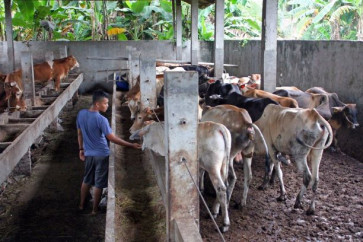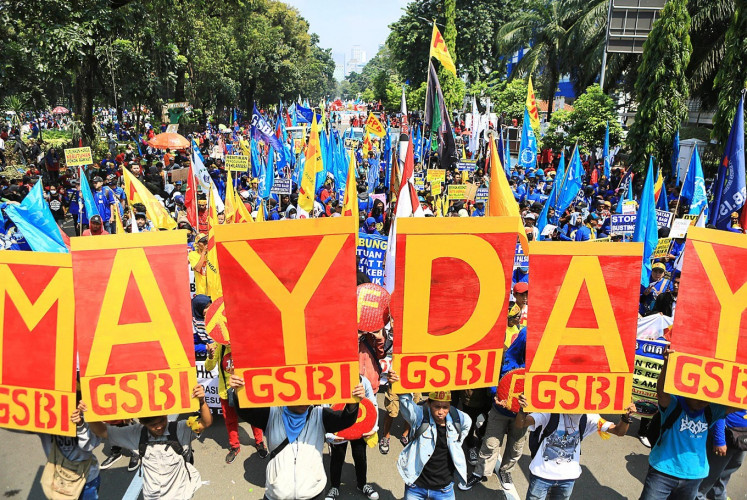Rituals called off after birth of twins
Residents of the customary village of Ketewel, Gianyar, have cancelled observations of Galungan and Kuningan after the birth of brother-and-sister twins
Change text size
Gift Premium Articles
to Anyone

R
esidents of the customary village of Ketewel, Gianyar, have cancelled observations of Galungan and Kuningan after the birth of brother-and-sister twins.
Balinese tradition holds that the birth of mixed-sex twins, known locally as kembar buncing, brings with it a spiritual impurity for 42 days.
The village will resume religious activities after completing a huge purification ritual at the end of the impurity period, according to officials.
The twins, whose father is a gynecologist, were born on Feb. 4, meaning the impurity period will end on March 16.
Throughout the period, Ketewel, which comprises 11 traditional banjar neighborhoods, would not hold any religious rituals.
All the temples in the village were empty during Galungan and Kuningan religious festivals celebrating the victory of Dharma (virtue) over Adharma (vice).
“Each family is still allowed to present a simple offering in its family compound,” Ketewel customary village chief I Wayan Loci said.
The decision to enact the impurity period was done democratically in accordance with village awig-awig (traditional law) and included input from the newborns’ family, Loci said.
Traditionally, the birth of kembar buncing to a commoner family was deemed a manak salah (wrongful birth), requiring the newborns and their parents to be banished from the village during the impurity period.
In some cases, they were asked to live in makeshift shelters in village cemeteries until the purification ritual. Several villages in Bali still abide by this tradition.
However, the birth of kembar buncing to a royal family is regarded as an auspicious event. Public feasts and parties were held when royal kembar buncing were born. When the twins reached adulthood, they would be married to each other and rule the country. It was believed that a kingdom ruled by kembar buncing would be blessed with prosperity and victories.
Experts say that social status, instead of a divine principle, was the real reason why commoner kembar buncing were poorly treated. In ancient Bali, memada-mada (imitating royalty) was a mortal sin and giving birth to kembar buncing was seen as a divine privilege of the royal family.
In Ketewel, however, the village did not ask the twins and their parents to leave the village or live in the cemetery, even shouldering the responsibility of organizing a purification ritual.
“We will not put an extra burden on the twin’s family. The village will pay all the expenses for the ritual,” Loci said.
The twin’s family said they respected the village council’s decision. “It was based on the awig-awig and on our tradition here. Naturally, we will respect any decision made by the council,” the twin’s grandfather I Made Neta said.
The experience of the Ketewel twins differed greatly from that of the kembar buncing and their parents in Padangbulia village, Buleleng, who spent their impurity period in a makeshift hut outside the village in 2004.
I Wayan Windia, a professor of Balinese law at Udayana University, said that the concept of manak salah, which could not be traced back to any valid sources in Balinese Hindu texts, was officially abolished in 1951 by the Bali Legislative Council.
“We will reiterate this fact and the need to strengthen the 1951 decision at the upcoming annual congress of the Grand Council of Customary Villages (MUDP),” he said.









